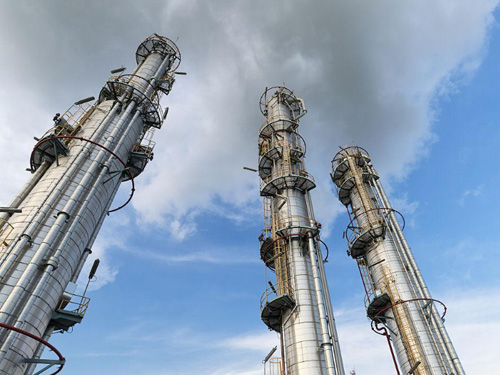
Hydrogenation equipment is crucial across various industries such as petrochemicals, fertilizer production, food processing, and environmental protection. Selecting the right hydrogenation equipment can boost production efficiency, enhance product quality, and reduce operational costs. With numerous options available in the market, how can businesses find the most suitable solution? This guide provides detailed advice on selecting hydrogenation equipment for different applications.

I. Understanding the Basic Types of Hydrogenation Equipment
Hydrogenation Reactors
Hydrogenation reactors are the core component of hydrogenation equipment, responsible for the hydrogenation reaction. Key types include fixed-bed reactors, fluidized-bed reactors, and multiphase reactors. The choice depends on the nature of the reactants, reaction conditions, and product requirements.
Hydrogen Generators
Hydrogen generators produce and supply hydrogen. They include water electrolysis hydrogen generators and chemical reaction hydrogen generators. Choose a generator based on hydrogen demand and purity requirements.
Catalysts
Catalysts accelerate hydrogenation reactions. Common catalysts include nickel-based, palladium-based, and platinum-based catalysts. Selecting the right catalyst is crucial for the reaction type and target product.
Cooling and Heating Systems
Cooling and heating systems maintain the required temperature during reactions. Equipment typically includes heaters, condensers, and temperature control devices. Choose systems based on the temperature range needed for the reaction.
II. Selecting Equipment Based on Application
Petrochemicals
In petrochemical industries, hydrogenation equipment is used to improve crude oil quality, process heavy crude oil, and produce petrochemical products. Key considerations include processing capacity, high-temperature and high-pressure resistance, and catalyst selection.
Processing Capacity: Ensure the equipment meets production needs and can handle large volumes of crude oil.
High-Temperature and High-Pressure Resistance: Choose equipment that can withstand extreme conditions.
Catalyst Selection: Use catalysts suitable for heavy crude oil processing.
Fertilizer Production
In fertilizer production, hydrogenation equipment is used to synthesize ammonia, urea, and other fertilizers. Consider reaction efficiency, energy consumption, and catalyst stability.
Reaction Efficiency: Select high-efficiency reactors to enhance ammonia synthesis.
Energy Consumption: Choose energy-efficient equipment to lower production costs.
Catalyst Stability: Ensure catalysts remain stable and effective over time.
Food Processing
In food processing, hydrogenation equipment improves the quality of fats and oils. Focus on food safety, ease of operation, and maintenance costs.
Food Safety: Choose equipment that meets food safety standards.
Ease of Operation: Ensure the equipment is user-friendly and easy to maintain.
Maintenance Costs: Opt for equipment with low maintenance costs to reduce production expenses.
Environmental Applications
In environmental protection, hydrogenation equipment is used for waste gas and wastewater treatment. Consider processing capacity, environmental performance, and long-term stability.
Processing Capacity: Choose equipment that efficiently handles waste gas and wastewater.
Environmental Performance: Ensure equipment meets environmental standards and reduces environmental impact.
Long-Term Stability: Select equipment that is stable and requires minimal maintenance.
III. Key Considerations
Equipment Specifications and Configuration
Specifications and configurations affect performance and adaptability. Choose equipment that fits production needs and meets specifications.
Technology Level
The technology level impacts performance and efficiency. Select equipment with advanced technology to improve production efficiency and lower operational costs.
Economic Efficiency
Evaluate initial investment, operating costs, and return on investment. Choose cost-effective equipment to maximize economic returns.
Supplier Reputation
Supplier reputation affects equipment quality and after-sales service. Opt for suppliers with a strong reputation for quality and support.
After-Sales Service
After-sales service is crucial for maintaining equipment. Choose suppliers that offer comprehensive support, including technical assistance, repair services, and spare parts.
IV. Conclusion
Selecting the right hydrogenation equipment is essential for enhancing production efficiency, improving product quality, and reducing operational costs. By understanding the basic types of equipment, selecting based on application, and considering key factors, businesses can find the best hydrogenation solution. This guide aims to provide valuable insights for choosing and applying hydrogenation equipment, helping businesses succeed in a competitive market.



